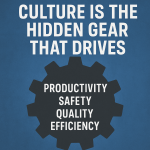The Strategic Role of Executives in Blue-Collar Businesses
In today’s fast-paced industrial landscape, the importance of having skilled executives at the helm of blue-collar businesses cannot be overstated. Whether it’s manufacturing, construction, or any other labor-intensive sector, effective leadership plays a crucial role in driving growth, maintaining operational efficiency, and ensuring long-term sustainability.
However, there are distinct challenges that face white-collar executives leading blue-collar organizations.
The Unique Challenges of Blue-Collar Leadership
Understanding the Workforce
Executives in blue-collar industries face unique challenges compared to their counterparts in white-collar sectors. The workforce is often composed of individuals with hands-on skills and practical experience rather than formal education. Leading such a workforce requires a deep understanding of their needs, motivations, and the day-to-day challenges they encounter.
Executives who come from a blue-collar background themselves, or who have invested time in understanding these dynamics, are better equipped to inspire and lead their teams effectively.
Balancing Efficiency with Employee Well-being
Operational efficiency is a top priority in blue-collar industries, where margins can be thin, and competition is fierce. However, this focus on efficiency must be balanced with a commitment to employee well-being. Executives must navigate the fine line between pushing for productivity and ensuring that workers are not overburdened or placed in unsafe conditions. Striking this balance is crucial for maintaining a motivated workforce and minimizing turnover.
Navigating Regulatory Compliance
Blue-collar industries are often subject to stringent regulations, particularly regarding safety and environmental impact. Executives must be well-versed in these regulations and proactive in implementing compliance measures. Failure to do so can result in costly fines, legal action, and damage to the company’s reputation. This makes regulatory knowledge a key component of effective leadership in blue-collar businesses.
The Importance of Industry-Specific Executive Coaching
Given the unique challenges faced by executives in blue-collar industries, specialized coaching can be a valuable tool for enhancing leadership effectiveness. Programs like those offered by Jeremy L. Davis focus on equipping executives with the skills and insights needed to thrive in these demanding environments.
Tailored Leadership Development
Generic leadership development programs fall short in addressing the specific needs of blue-collar executives. Industry-specific coaching, on the other hand, is tailored to the realities of blue-collar work. This includes a focus on practical problem-solving, crisis management, and effective communication with a diverse workforce. By honing these skills, executives can become more effective leaders, capable of driving their businesses forward in even the most challenging circumstances.
Enhancing Communication Skills
Effective communication is a cornerstone of successful leadership. However, the communication styles that work in white-collar settings may not be as effective in blue-collar environments. Industry-specific coaching helps executives develop communication strategies that resonate with their workforce, fostering a culture of trust, transparency, and mutual respect. This, in turn, can lead to higher levels of employee engagement and productivity.
Fostering a Safety-First Culture
Safety is paramount in blue-collar industries, where the physical demands of the work can lead to accidents and injuries if not properly managed. Executive coaching emphasizes the importance of safety leadership, guiding executives in implementing and enforcing robust safety protocols. This not only protects workers but also reduces the risk of costly disruptions to operations.
The Impact of Strong Executive Leadership on Blue-Collar Businesses
The benefits of strong executive leadership extend beyond the immediate operations of a blue-collar business. When executives are equipped with the right skills and knowledge, they can drive significant improvements across the entire organization.
Increased Operational Efficiency
Effective leadership can lead to more streamlined operations, with processes optimized for maximum efficiency. Executives who understand the intricacies of their industry can identify areas for improvement, implement best practices, and leverage technology to enhance productivity. This can result in cost savings, faster turnaround times, and a stronger competitive position in the market.
Improved Employee Morale and Retention
A well-led workforce is a motivated workforce. Executives who demonstrate empathy, communicate effectively, and prioritize employee well-being can significantly boost morale. This, in turn, reduces turnover and helps retain valuable talent. In industries where skilled labor is in high demand, maintaining a stable workforce is essential for long-term success.
Stronger Customer Relationships
Customers are more likely to do business with companies that are well-managed and deliver consistent results. Strong executive leadership ensures that operations run smoothly, products meet quality standards, and customer needs are met promptly. This builds trust and fosters long-term relationships with clients, which is crucial for sustaining business growth.
Enhanced Innovation and Adaptability
Blue-collar industries are not immune to the forces of change, whether driven by technological advancements, shifting market demands, or regulatory updates. Executives who are forward-thinking and adaptable can position their companies to take advantage of new opportunities and navigate challenges effectively. Industry-specific coaching helps leaders develop the strategic vision and agility needed to thrive in a rapidly evolving landscape.
The Jeremy L. Davis Approach to Blue-Collar Executive Coaching
Jeremy L. Davis is a recognized expert in blue-collar executive coaching, with a focus on helping leaders bridge the gap between white-collar management practices and the realities of blue-collar work. His approach is grounded in practical experience and a deep understanding of the challenges faced by executives in industries such as manufacturing, construction, and logistics.
Real-World Experience
Unlike many coaching programs that rely on theoretical frameworks, Jeremy L. Davis’s coaching is rooted in real-world experience. Having worked extensively in blue-collar environments, he brings firsthand knowledge of the challenges and opportunities that executives face. This practical insight is invaluable in helping leaders develop strategies that work in the real world, not just on paper.
Customized Coaching Programs
One of the key strengths of Jeremy L. Davis’s approach is its emphasis on customization. Recognizing that no two blue-collar businesses are the same, he tailors his coaching programs to meet the specific needs of each client. This ensures that executives receive the guidance and support they need to address their unique challenges and achieve their business goals.
Focus on Long-Term Success
While some coaching programs focus on short-term fixes, Jeremy L. Davis is committed to helping executives build sustainable success. His coaching emphasizes the development of leadership skills that will serve executives well over the long term, from effective communication and decision-making to strategic thinking and innovation. This long-term perspective is essential for driving sustained growth and profitability in blue-collar businesses.
Conclusion: The Essential Role of Executives in Blue-Collar Businesses
In blue-collar industries, the role of executives is critical to the success of the business. These leaders are responsible for navigating complex challenges, driving operational efficiency, and fostering a positive work environment. However, the unique demands of blue-collar work require a specialized approach to leadership development.
Industry-specific executive coaching, like that offered by Jeremy L. Davis, provides the tools and insights needed to bridge the gap between white-collar management practices and blue-collar realities. By investing in coaching, blue-collar businesses can enhance the effectiveness of their executives, leading to improved operational efficiency, higher employee morale, stronger customer relationships, and long-term success.
For more information on how Jeremy L. Davis can help your executives thrive in blue-collar environments, visit Jeremy L. Davis Blue-Collar Executive Coaching.









